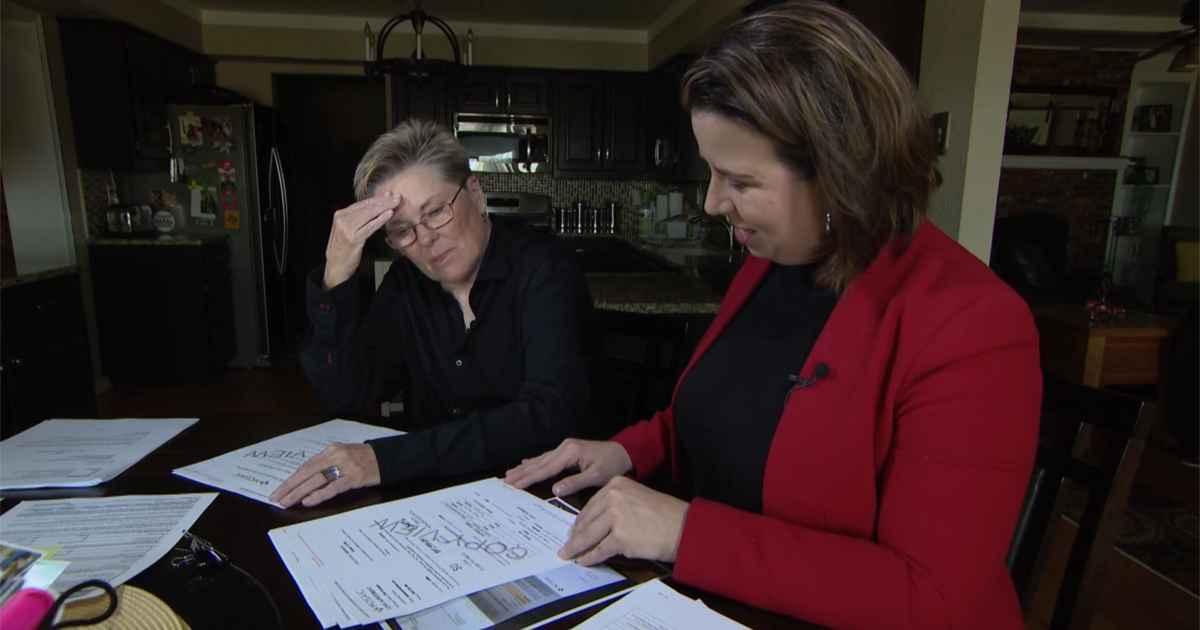Exclusive: Texas Secretary of State John Scott on rejected mail ballots
TARRANT COUNTY (CBSDFW.COM) — Mary Crabb and her sister Julie Philp say they were frustrated and disappointed that after voting by mail for 15 years, they couldn't do so during the March 1 primary.
They disagree with the Tarrant County elections office that they repeatedly made mistakes while filling out their mail ballots.
Crabb said, "We've always voted, it's always been a priority for us."
Philp agreed saying, "By making it difficult for seniors and disabled people, it's like we're getting left out in the cold."
They aren't alone.
Newly released statistics by the Texas Secretary of State's Office show out of the 198,947 total mail ballots cast in all the state's 254 counties, nearly 24,636 were rejected, or 12.38% of all mail ballots.
That includes the 3,370 mail-in ballots, or about 11%, of mail-in ballots in North Texas' four largest counties.
A breakdown by political party shows there were 14,281 Democrats' mail ballots tossed out, or 12.87% of their party's 110,967 mail ballots.
The Republicans had 10,355 of their mail ballots tossed out or 11.77% of all of their party's 87,980 mail ballots.
In all, the Secretary of State's Office said there were a record 3,029,773 total ballots cast during the March 1 primary.
That includes 1,954,172 in the Republican primary and 1,075,601 in the Democratic primary.
During an exclusive interview Wednesday, Texas Secretary of State John Scott said the primary reason for the rejections is voters didn't comply with the new state law's ID requirements.
Mail ballots must include either the voter's driver's license number or the last four digits of their social security number, whichever matches what they originally submitted when they registered to vote.
Because many people don't remember which number they included
Scott said, "Just because their ballot was rejected doesn't mean they didn't vote in the election. The reason that's true is those folks once they're notified their ballot was rejected can still go vote provisionally in-person. There's some inferential evidence that leads me to believe from what others have reported that there may have been a high number of provisional ballots and a high number of those provisional ballots counted."
In addition to having the option of voting provisionally, voters whose mail ballots were rejected also had the option of correcting their mail ballots up to six days after the March 1 primary.
The Secretary of State's Office is now trying to determine how many people whose ballots were rejected did ultimately get to vote.
Scott praised some counties for making it easier for those filling out mail ballots. "Some of the counties went so far as to highlight the boxes that are required information on the mail ballots. We think that's a great idea."
When asked those counties saw fewer mistakes in mail ballots Scott said, "It looks like it, but we still saw mistakes even with that."
AARP Texas Director Tina Tran issued a statement saying, "Today's announcement by the Texas Secretary of State's Office of nearly 25,000 ballots across the state, a 12.38% rejection rate, is deeply troubling and a sad indication that too many voters, including many older voters, are being disenfranchised because of changes made to the state's vote-by-mail program."
As for Mary Crabb, she said she understands the state wants to prevent people from cheating. "I want everybody to have their vote, but I think this is getting real close to harassment."
In response, Scott said, "No one wants anyone to feel like they're harassed."
The ballot rejection by county can be found below:
See Jack's full interview:




